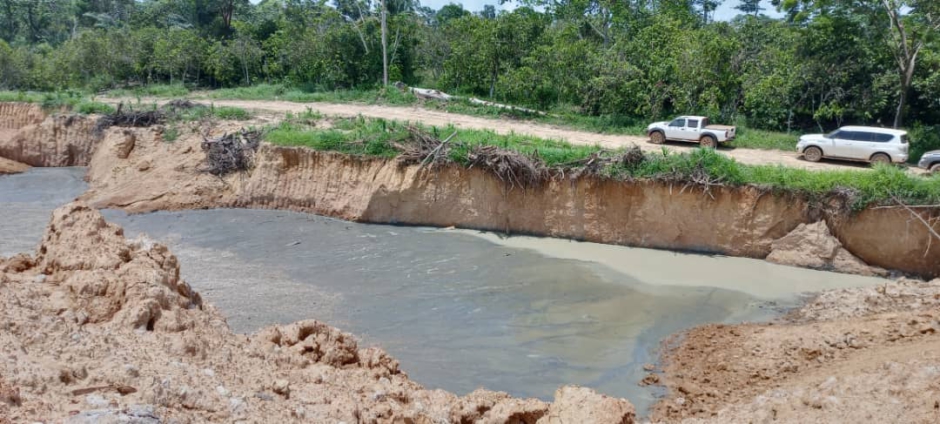Activities of illegal small-scale miners have made the Aboabo stream found in the Asutifi district of the Bono Ahafo region dangerous to the health of residents.
That is one of the findings from a study by the materials engineering department of the Kwame Nkrumah University of Science and Technology.
The study which assessed the impacts of illegal small-scale mining activities on the water quality was published in the journal of Earth Sciences Malaysia.
Samples of the stream water, sediments and plants around the stream were collected from three points which were the upstream, mid-stream and downstream for analyses.
Apart from the high cloudiness of the river, the scientists found contaminations with harmful bacteria like E-coli and heavy metals like Mercury.
“Faecal coliforms and E-coli readings exceed the permissible limit of 5 NTU and 0 MPN/100ml respectively as required by Ghana’s Environmental Protection Agency and World Health Organisation (WHO).
“Total suspended solids readings at the midstream were higher than the permissible limit. However, levels of total dissolved solutes and dissolved oxygen recorded, were below the limit.
“The sediments were also heavily polluted with Mercury, Arsenic and Cadmium,” lead scientist, Ebenezer Asante Boafo Brobbey, said.
There was, however, a ray of hope as the scientist found plants like the Christmas bush scientifically known as Alchornea cordifolia could salvage mercury from the river.
“Alchornea cordifolia, Chromolaena odorata and Spigella anthelmia growing within the stream were taken to assess their efficiency in removing the heavy metals from the stream. It was observed that the plants species had bioaccumulation factor (BF) greater than 1 for cadmium.
“Alchornea cordifolia was the only plant with BF greater than 1 for mercury. The plants species are potential hyper accumulators for mercury and cadmium hence are suitable for phytoremediation,” he said.
The scientists are advising the residents to desist from using these untreated streams as a source of drinking water to prevent any future bacterial epidemics.
They again advice that effluents from the illegal mining activities be diverted from entering the stream.
Waste rock dumps should be sited far away from the stream to avoid contamination by run-off water from the waste rocks.
Latest Stories
-
South Africa bursary scandal suspects granted bail
2 mins -
Ecobank successfully repays $500m Eurobond due April 18
6 mins -
Re: Doe Adjaho, Torgbui Samlafo IV, call for Unity among Paramountcies in Anlo
9 mins -
Extortion and kidnap – a deadly journey across Mexico into the US
12 mins -
Rihanna says fashion has helped her personal ‘rediscovery’ after having children
29 mins -
Development Bank Ghana targets GH¢1bn funding for commercial banks in 2024
48 mins -
Shatta Movement apologises to Ghana Society of the Physically Disabled after backlash
1 hour -
Sammy Gyamfi writes: Tema-Mpakadan Railway Project; A railway line to nowhere
2 hours -
Bright Simons: Is the World Bank saving or harming Ghana?
2 hours -
CAF Cup: RS Berkane banned from entering Algeria because of a map of Morocco with its Sahara
2 hours -
The media isn’t doing what is expected of journalism – Sulemana Braimah
3 hours -
Truck driver who caused train accident jailed 6 months
3 hours -
Music review: Okyeame Kwame proves rap dexterity on ‘No Competition’
3 hours -
How a 23-year-old fooled the internet with an AI Kendrick Lamar diss track
3 hours -
No man should be intimidated by the strength of a woman – Charlotte Oduro
3 hours

